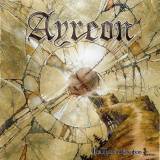The Top 10 Games of 2018
By matrix_hiei 0 Comments
Yes, I'm publishing my Game of the Year list in January for the second year in a row. Considering how much I do with my end of year music list, however, I'm going to give myself a pass for being slightly late. And while I echo the chorus that 2018 wasn't the all-time year for video games that 2017 was, I still found a number of gaming experiences (specifically 10 I suppose) that resonated enough with me throughout the last 12 months to inspire another list.
But first, some housekeeping:
Honorable Mentions:
Night in the Woods: Technically a 2017 game, but I played the Switch version that came out in February. That’s not enough for me to count it as a 2018 game, but I wanted to include it here to simply say it would have made last year’s list if I had played it in time and that it pulls off a sort of conversational tone in its dialogue that is hard to pull out off in any medium, but is unheard of in video games.
Warhammer Vermintide 2: The gameplay loop of Vermintide 2 scratches an itch for Left 4 Dead that I didn’t know I had, and the sheer variety and intuitiveness of the combat made smashing rats extremely satisfying. The clunky menus and lack of support throughout the year kept me from coming back, but I enjoyed my time with it a lot more than I expected to.
Super Smash Bros. Ultimate: The shockingly detailed “World of Light” campaign has received a lot of attention, and rightly so, but my biggest surprise with this Smash is how much I’ve enjoyed all of the weird multiplayer modes Nintendo has thrown in. From “Smashdown,” where you go through the whole roster with each character only allowed to be picked once, to 3v3 and 5v5 team modes, there’s a lot of options here that makes this more than just another Smash Bros. game.
Laser League: One of the more fun and novel multiplayer experiences of the year. Unfortunately, no one played it, so I don’t think I was ever able to get a full match in without at least one bot.
Now, the top actual 10 top:
10. Into the Breach
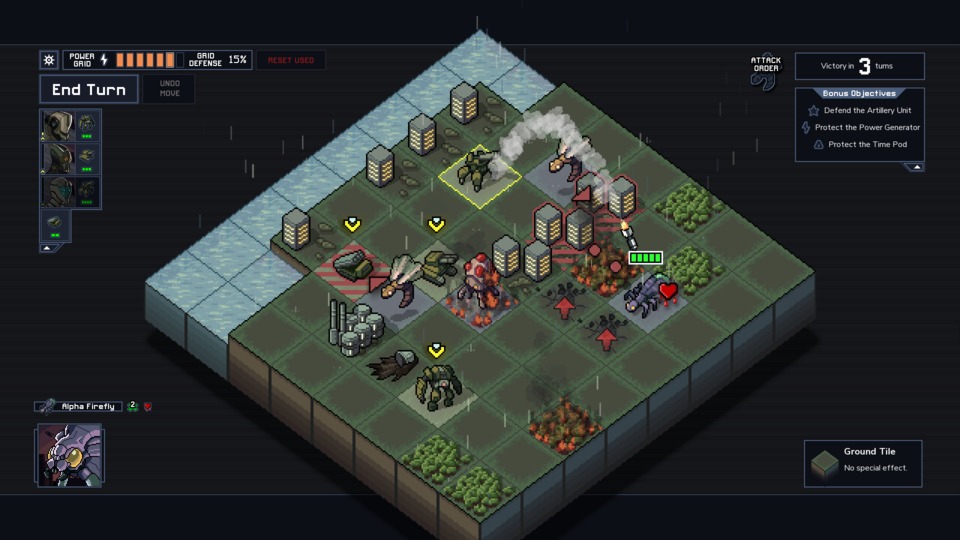
Into the Breach is a puzzle game hidden inside a tactics game. Instead of your typical loop of making a move and seeing how the enemy reacts, Into the Breach puts you in situations where you see how the enemies will move ahead of time and challenges you to protect your own units and the buildings around you. The matches are nicely bite-sized and the game’s pixelated mechs look outstanding, but I also found myself enjoying it more in spite of its "roguelike" mechanics than because of it, as I rarely found the motivation to experiment with new mechs or unlockable powers due to having to restart with every death. Still, there’s something to Into the Breach, particularly with its aesthetic and unique approach to a tactics genre that rarely feels innovative.
9. Forza Horizon 4
I fully admit that a lot of what I like about Forza Horizon 4 has probably been in other games in the series. However, as a newcomer to the franchise’s arcade spinoffs and as someone who generally isn’t huge into driving games, this one instantly hit me with a sense of speed I haven’t experienced since the glory days of Burnout. There is just something that feels so satisfying about whisking by the world around you a split second away from a possible crash at any moment, but Forza integrates the right amount of finesse as well. Each small difficulty bump forces you to think about your turning and set ups more and up, and the handling changes just enough with each change in season that it nudged me towards trying different cars and experimenting. It’s the kind of game I never would have tried if not for Xbox’s fantastic Game Pass service, and even if I didn’t stick with the weekly challenges, I really enjoyed my time with it.
8. Dragon Ball FighterZ
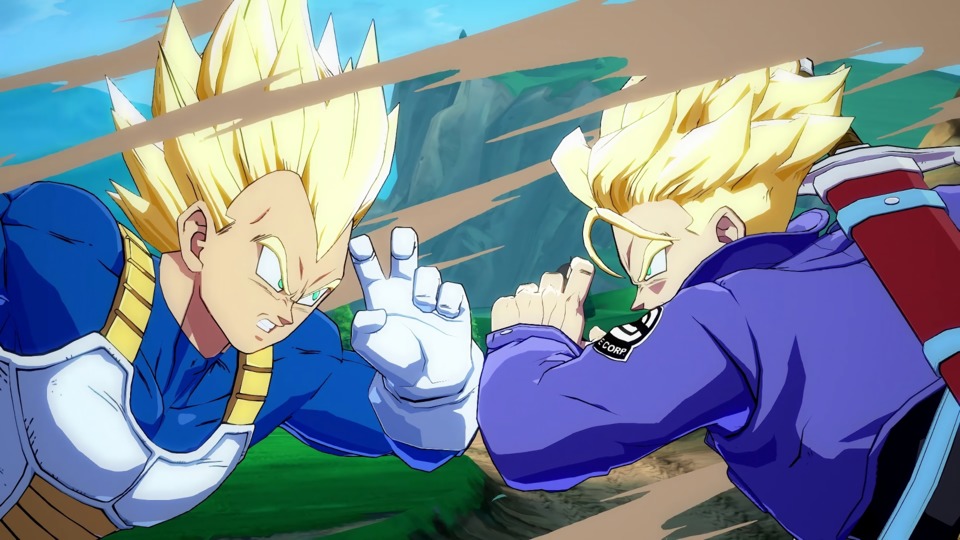
As someone with nostalgia for all things Dragon Ball and Marvel vs. Capcom, the makers of Guilty Gear devolving a 3v3 tag team fighter based on the popular anime was a shoo-in for my list. I wish there was more (or really better) single player content, as I wasted a great deal of time in the horribly repetitive story mode just to unlock a single character, but the actual fighting part of FighterZ looks stunning and plays even better. Purely as a fighting game, it hits a rare balance between technical and accessible, as auto combos make the basic mechanics easier to grasp and immediately feel fluid to play, but there’s a great deal of depth lurking beneath. But just as importantly, there's an obvious love and admiration for Dragon Ball here that puts it over the top. The way specific characters will interact if they are on the same team or against each other, or how specific animations and finishers will trigger only if you match how that battle went in the anime gives it a charming and ultimately rewarding level of fan service that only adds to an already fantastic game.
7. Monster Hunter: World
I really didn’t think I would like Monster Hunter: World. I know the story is the same for so many others, as Monster Hunter has been a notoriously difficult franchise to get into over the years, but even as I was playing World, I still didn’t think I would ever turn a corner. The opening missions took forever, since I didn’t have a great understanding of how I should be approaching these giant monster battles, and playing with friends (the whole reason I was even trying it to begin with) was needlessly obtuse. The moment the game told me I needed to watch a cut scene to even play co-operatively was the moment I felt was done with Monster Hunter forever. But I stayed with it. I started to figure out weaknesses and strengths, weapon and armor builds, and took lessons from every battle. I never actually became “good” at Monster Hunter, but I became good enough to have fun and find my own loop of going out and getting the parts I needed and checking in with friends in our guild about who needs what drops. It quickly turned from an impenetrable puzzle to a fun, communal experience, and something I’m really glad I stuck with.
6. Out of the Park Baseball 19
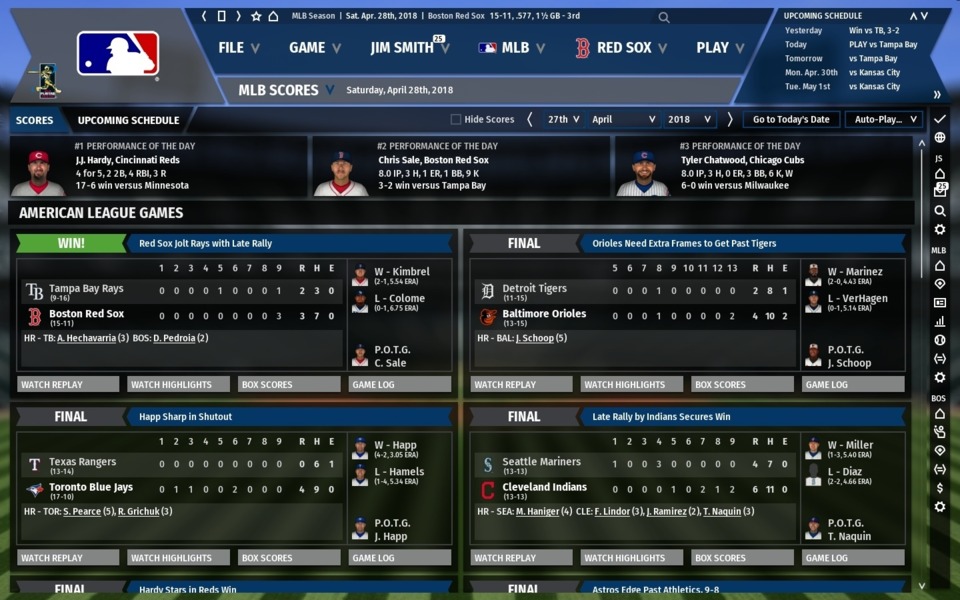
Yes, I put a text-based baseball simulator on my game of the year list, and one in a yearly franchise at that! Hear me out though. If you take out the actual baseball parts of Out of the Park, you’re left with a deep and engaging strategy game with a monumental amount of stats and customization. That’s always been what Out of the Park is about, and it’s never been better. However, this year’s edition adds actual moving players that you can see in your games. No, it’s not The Show or anywhere near that level of graphical detail, but just the visualization of every hit not only makes strategic moments easier, but adds a level of immersion that makes the game more exciting and rewarding. It made me feel all the more elated to turn my poor Seattle Mariners into World Series champions, and all the more sad when I remembered it’s never going to happen in real life.
5. Destiny 2: Forsaken
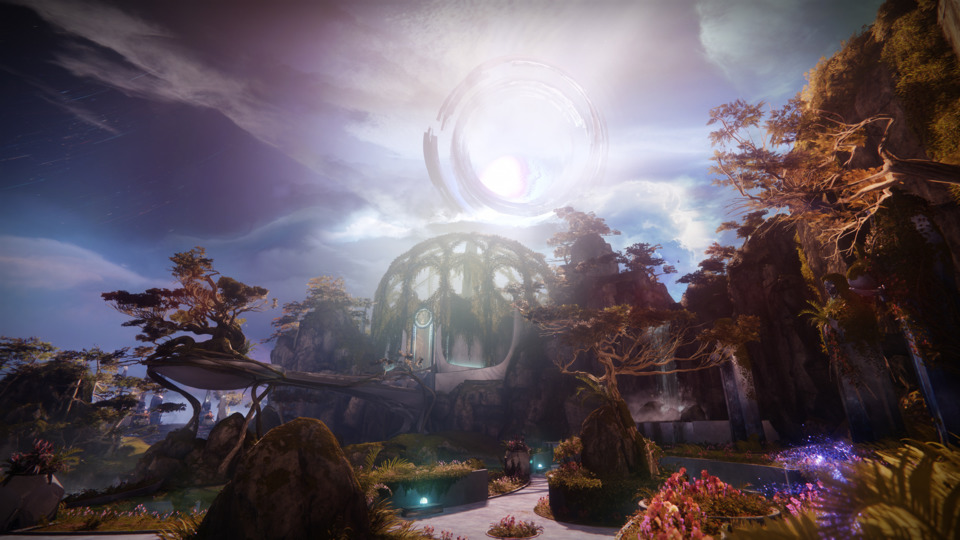
I debated whether to even include this, as it’s an expansion to a 2017 game, but Forsaken is such a massive improvement from the base version of Destiny 2 that it deserves its own place. It would be easy to say that Forsaken does for Destiny 2 what “The Taken King” did for Destiny 1, but even that isn’t 100% accurate. The Taken King fleshed out Destiny in a way the game badly needed, but Forsaken is the first time the Destiny franchise actually feels like a “games as a service,” or at least something whose content I actually wanted to repeat. Nearly every bit of repeatable content, from the excellent new Gambit multiplayer mode to strikes to all of the mysterious challenges in the Dreaming City (one of two new planets and easily the most beautiful looking and fully featured in series history) reward you with something tangible while also progressing larger quests. I felt like Destiny 2 valued my time in a way the franchise never had and gave me reasons to keep playing. And when the shooting feels this good, that’s really all I ever needed.
4. Red Dead Redemption II
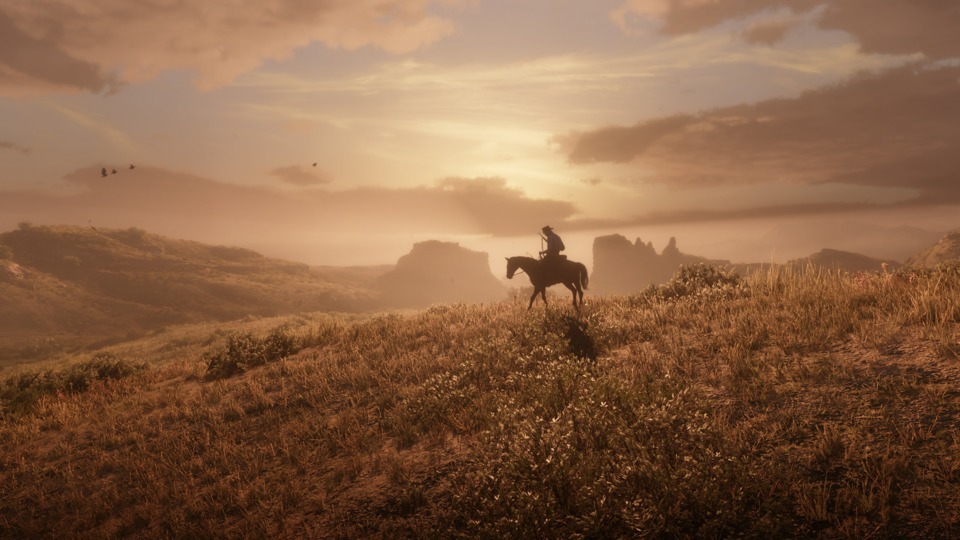
Red Dead Redemption II is not a perfect game by any stretch of the imagination, but it is a fascinating one. It’s a world rendered in such extraordinary detail that asks (or really forces) you to play at such a meticulous pace that it creates a type of atmosphere that few blockbuster games attempt, let alone achieve. It’s certainly not without its problems, as the guns don’t feel great, the movement is clunky, and the main story missions are too often unclear about what causes a fail state, but I learned to roll with Read Dead and enjoy its pace. I entered this world for long stretches at a time, riding to my eventual destination and getting side tracked along the way with all sorts of side missions and interactions with characters that felt like they lived and breathed in the world independent of my actions. Arthur's journey is full of memorable individuals, from your increasingly desperate gang leader Dutch van der Linde to the young John Marston, whose maturation throughout the story is important without always being a central focus, and returning to your camp after a long journey and hearing how your crew interacts creates a feeling of home that I rarely ever see in games. But even with its individual highs and lows, the thing about Red Dead that I will take with me is Arthur Morgan himself, as he’s a strong, nuanced protagonist who is given the time and space to grow throughout the course of the game. There are just so many stand out scenes and moments from my time with Arthur that struck me in a way video game stories and performances rarely do, that I found myself role playing his character with my choices in the open world and feeling a level of tension I never get with video game narratives.
3. Return of the Obra Dinn
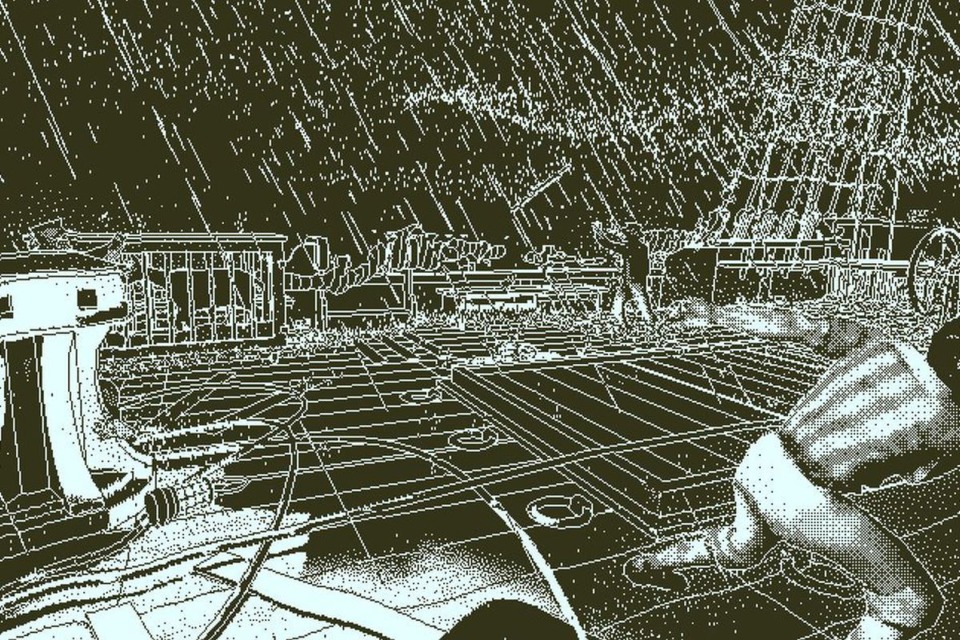
This was a late entry for me, but I’m really glad I snuck Obra Dinn in before the end of the year. Not only is this a fantastic game and a lot more fun to actually play than Lucas Pope’s debut, Papers Please, but Return of the Obra Dinn feels unique as a gaming experience. It’s a logic puzzle at its core, as you play as an insurance adjuster tasked with finding the names and cause of death for all 60 passengers on the Obra Dinn, a wrecked ship from the early 1800s. You see each passengers’ final moments, largely in reverse order, and are tasked with piecing things together from there. It’s the type of game that inspired me to break out my notebook and write down clues and small details in a way that I hadn’t seen since games like “Her Story” and “The Witness.” However, it’s not just that Obra Dinn is novel, as it’s so well put together as a puzzle game and the structure largely prevents brute forcing your way through answers. If you get three passengers’ fates correct, you’ll be rewarded with a satisfying music cue that made me feel on top of the world. In fact, I was so gripped by figuring out all of the details of the Obra Dinn that if silly things like work and food and life weren’t in the way, I would have played this in one 10 hour sitting. I couldn’t get it out of my head, and I need something else like it. Please make another one of these. Someone!
2. Dead Cells
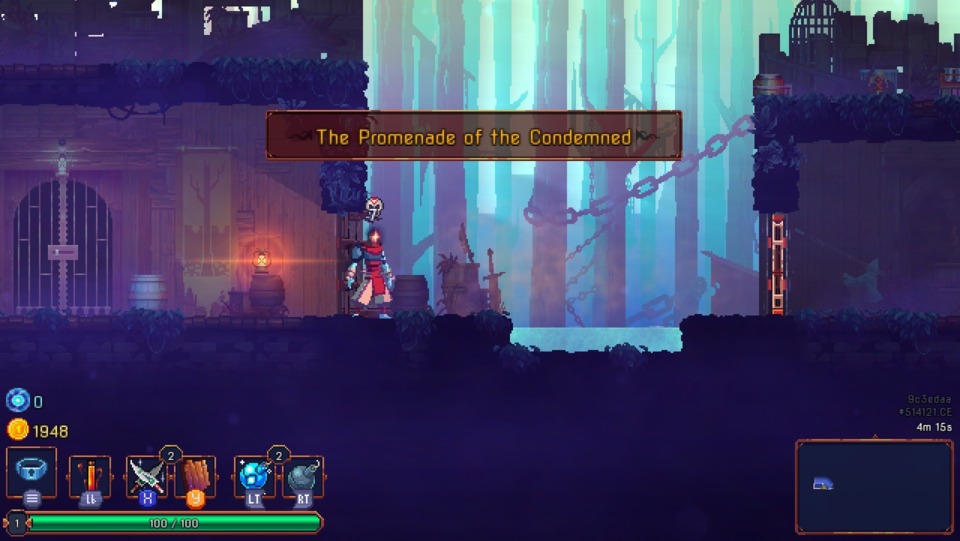
I remember my first major run of Dead Cells. I had finally cleared the first three levels and earned the right to fight the first boss. As you might expect, it kicked my ass, sending me right back to the game’s beginning. A few runs later, I crawled back, rolled away from the boss as I saw his attacks coming, set up traps, and found my way past it by the skin of my teeth. A few hours later and I could get past that boss my sleep, using it as a way to test new weapons and builds.
That’s the beauty of Dead Cells. It’s not just a "roguelike" where you use your currency (cells) to unlock new weapons, methods of traversal, and modifiers, but a game that just feels so damn good to play that every death feels like your own fault and the tools to learn from your mistakes are right in front of you. It would be easy to find a play style and stick with it, but Dead Cells rewards you for experimenting and going out of your comfort zone. If you had told me early on I would eventually find success with arrows and shields, completing forgoing any melee weapons, I would never have believed you. It’s just that every aspect of Dead Cells feels so well put together, from the fluid animation, to the way you can cancel out of moves, to the oh so satisfying roll dodge, that even the vastly different weapon types all felt natural to use. There are a lot of games like this, but none are as tense, exhilarating, and rewarding as what Motion Twin has crafted, and it achieves a type of “one more run” addictiveness that supersedes the fact that these runs can actually get pretty long after a while. It isn’t just “another one of these,” but a game that’s progression and moment to moment action feels so perfect that it completely revolutionizes the genres its building from.
1. Celeste
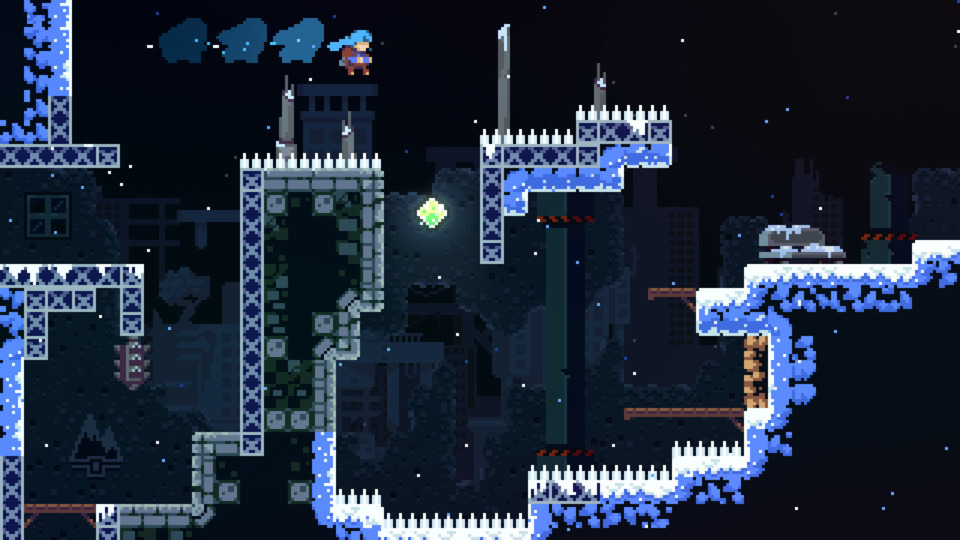
Celeste is a game that came out at the perfect time. After an especially rough December where I felt out of control of my mental health in a way I hadn’t in nearly a decade, I never could have imagined how much solace I would find in a tiny indie platformer. The thing is, I knew I was probably going to enjoy Celeste on some level. It’s reminiscent of Super Meat Boy in terms of its tight controls and quick resets after each of your many deaths, and that’s very much my kind of game. What I didn’t expect, however, is how emotionally invested I ended up getting in Celeste’s story and how Madeline’s journey connected to both the gameplay and my own struggles with depression. Celeste is a game about a young girl climbing a mountain, but the very act of playing Celeste is itself a mountain, and the game encourages you through it. It’s the rare game of its kind that feels accepting of its player base and isn’t there to laugh at your failure. This positivity ranges from its deep accessibility options to its gorgeous soundtrack to simply reminding you to relax during its loading screens. And even as someone who loves these kinds of games and actively wanted a platforming challenge, I needed the encouragement. Not just because of the game itself, but because I found myself thinking so much about my own mental health while playing, relating more than I ever wanted to admit to character who is literally running from her inner demons. It’s not a game about getting over depression, but a game about coming to terms with who you are and learning to love yourself. And Celeste reminded me that it’s OK. And that I’m OK.
